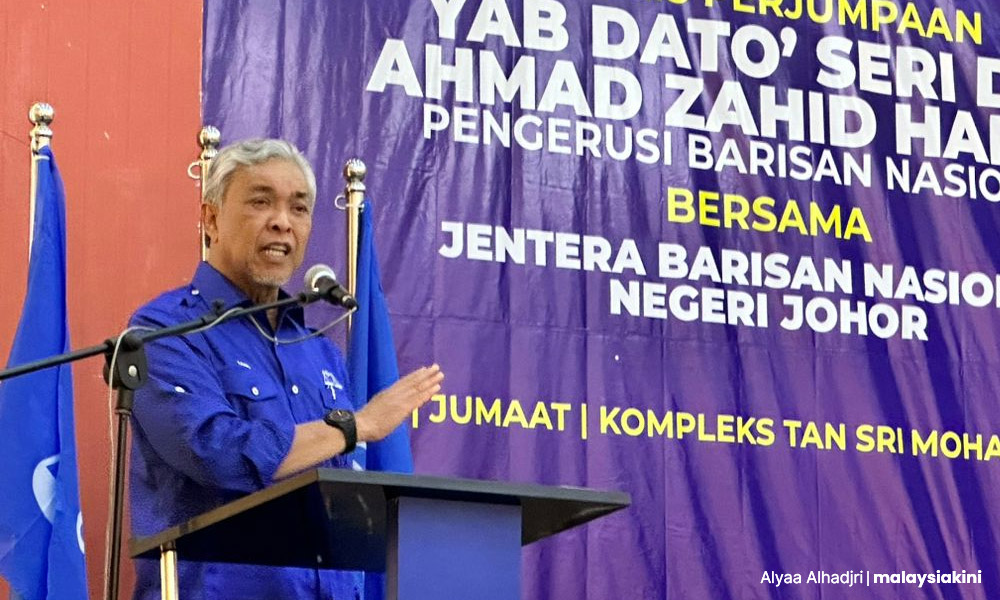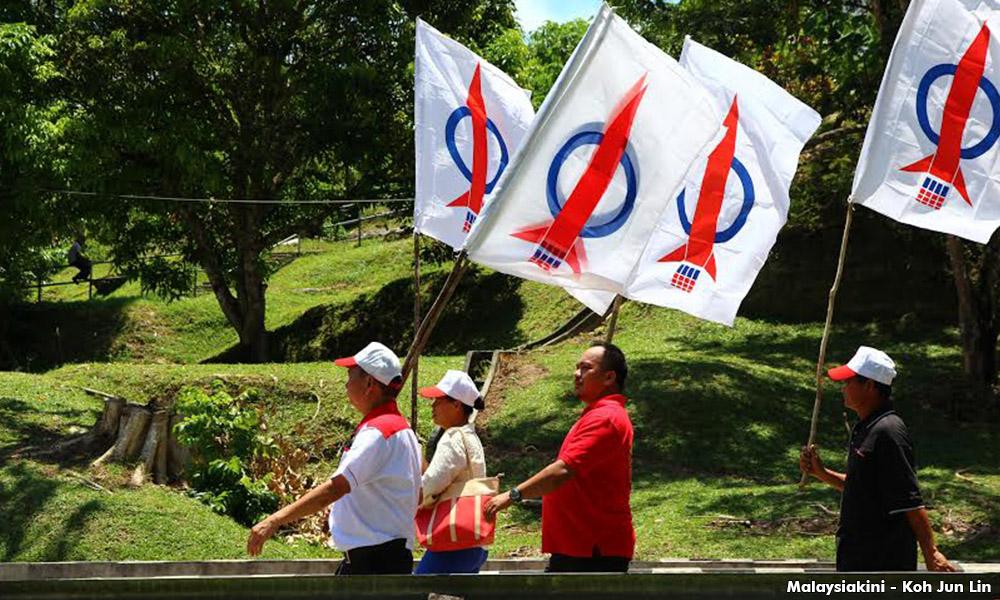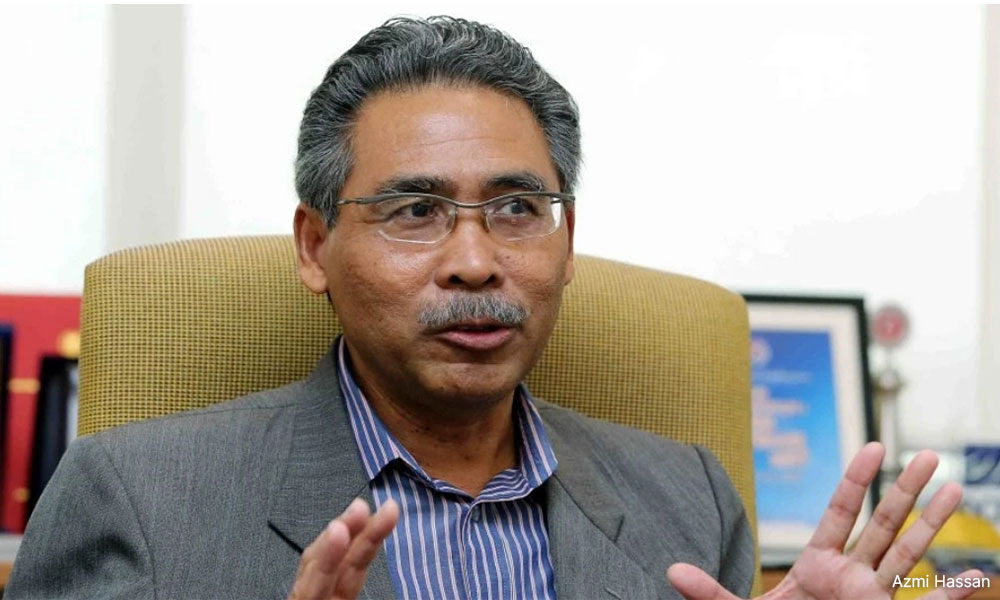ANALYSIS | Perikatan Nasional made further gains during the Aug 12 state polls, fuelled by a campaign that deemed the elections as a referendum against the Anwar Ibrahim administration.
The Pulai by-election, however, has seen the fledgling coalition set more modest goals - denying Anwar a two-thirds majority in Parliament.
Anwar became the prime minister in November 2023 with the support of 148 non-PN MPs, just enough for a two-thirds majority that should, in theory, allow him to amend the Federal Constitution.
With the death of Pakatan Harapan-Amanah MP Salahuddin Ayub, PN’s campaign has pivoted away from dethroning Anwar to denying the prime minister any chance of amending the Federal Constitution in his favour.
A prevalent thread in PN’s campaign has been the allegation that giving Anwar two-thirds would allow him to carve out more electoral constituencies in urban areas, thereby giving Harapan an edge.
Early into the campaign, Johor Bahru Bersatu Women’s chief Azlinda Abdul Latif told some 50 supporters at a ceramah in Pulai PAS’ operation centre on Tuesday that DAP had long “plotted” to “give birth” to more Chinese-majority constituencies.

She claimed there were plans to create new constituencies out of existing ones that have an “imbalanced” number of constituents. Of these “imbalanced” constituencies, she said 11 are currently held by DAP.
This, said Azlinda, represented a clear and present danger to Malay-Muslims.
Over the weekend, PN’s campaign turned up a notch with the coalition’s chairperson Muhyiddin Yassin claiming at a ceramah that the Anwar administration intended to add 78 seats to the Dewan Rakyat.
“We expect the redrawing of electoral boundaries or ‘gerrymandering’ to happen in a few years. However, it cannot be done unless they have a two-thirds majority.
“If they have (two-thirds) majority, they will definitely do it. We voters must think of the impact. Surely the urban areas, which are controlled by DAP, will (see constituencies) multiply.
“What will happen to us then?” asked Muhyiddin, during a ceramah in Kempas, according to Berita Harian.
Two-thirds important for Anwar
Malaysia uses a first-past-the-post election system which makes election boundaries extremely crucial. Past BN administrations skewed the electoral boundaries to create more seats in Parliament for rural constituents.
Incidentally, Muhyiddin has been the beneficiary of this system. According to the voter numbers published by the Election Commission for the Aug 12 election, the number of voters in Muhyiddin’s stronghold of Pagoh was 70,214 - a third of the voters in Tebrau, the most populous constituency in Johor.
Surprisingly, some of the Harapan-BN top brass are also using the two-thirds majority argument as part of their campaign.
BN chairperson Ahmad Zahid Hamidi in his maiden speech for the Pulai campaign stressed the importance of the two-thirds majority precisely to amend the Federal Constitution and a redelineation exercise.
Although the Harapan and BN leader did not elaborate on why two-thirds was important, it is understood that the Anwar administration will need to amend the Federal Constitution to fulfil some of its reform initiatives.

The last redrawing of electoral boundaries for Peninsular Malaysia was concluded in 2016, without new seats being added - a process which would require a two-thirds majority. The next round is scheduled to begin in 2024.
History repeats itself
If talk about denying the ruling coalition a two-thirds majority sounds familiar, it would be because this was the main agenda of the opposition campaign led by Anwar in the run-up to the 2008 general election.
At the time, opposition parties PKR, DAP, and PAS were in a loose pact without a name. Anwar’s PKR had separate deals with DAP and PAS to encourage straight electoral fights against BN.
The common goal of denying BN the two-thirds majority it had enjoyed since 1974 managed to allow DAP and PAS to put aside their ideological differences, albeit only temporarily.
This led BN, then led by Abdullah Ahmad Badawi, to lose its two-thirds majority in the Dewan Rakyat, a moment which Anwar described as a “new dawn for Malaysia”.
During the 2008 campaign, DAP’s rallying cry was that denying BN two-thirds would end “Umno political hegemony”. It is ironic that DAP is now the raison d'être of a similar opposition campaign.

However, unlike the situation in 2008, PN’s strategy in Pulai - an urban constituency where non-Malays make up just over half the voters - could have unintended consequences.
While the opposition in 2008 wanted to curb abuses, PN’s strategy has signalled to voters that they approve of the malapportionment of electoral constituencies and forgoing the principle of “one person, one vote”.
Moreover, PN has a massive gap to close in order to win. During the general election last year, incumbent Salahuddin polled 55.3 percent of the vote share while the challenger from PN only polled 17.6 percent.
A loss won’t mean much
Although the prospect of a PN win is unlikely, political analyst Azmi Hassan said PN’s strategy is ultimately aimed at destabilising the Anwar administration as much as possible.
He said the results of the Aug 12 state elections had little impact on the Anwar administration and even if the Harapan candidate were to lose, the federal government would still be safe because the “anti-hopping laws” made the prospect of ousting the prime minister slim.

“The reality is both sides, Harapan and PN, played up the issue of a two-thirds majority and stability of the government.
“The fact is that a loss in Pulai will not change the government, but PN will claim it is a start to a change,” said Azmi.
Universiti Malaya academic Awang Azman Awang Pawi said although he expected the Harapan-BN pact to retain the seat, winning with a reduced margin will likely add further strain on the Anwar administration.
“But a win with a smaller majority than the last can damage Harapan-BN’s reputation and their cooperation will come into question,” he told Malaysiakini. - Mkini



No comments:
Post a Comment
Note: Only a member of this blog may post a comment.